Press Release
Navigating the Challenges of Bitcoin Mining
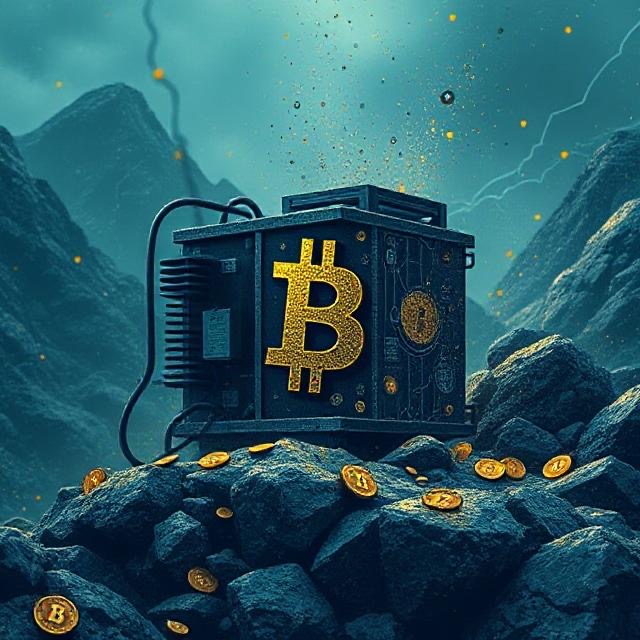

The transformation that Bitcoin went through, from a niche digital currency to a globally recognized asset, has revolutionized how we think about money, investment, and technology. By advancing decentralized finance, Bitcoin directly challenged the existing financial institutions. With the surge in interest came a growing need for innovative approaches to access this ecosystem. That’s why Bitcoin mining, once an obscure activity reserved for early tech adopters, has quickly grown into a sophisticated, multi-tiered industry. Today, it’s even more than that. Cryptocurrencies live by their own laws and regulations; there are trends to follow, and elements to understand before getting involved. Yet, despite Bitcoin’s evolution, it continues to face challenges that require new, user-friendly solutions.
The Traditional Path: From CPUs to ASICs
In the early days of Bitcoin, enthusiasts mined using their personal computers’ central processing units (CPUs). The power was more than enough, and the lack of interest in a new, untested technology didn’t allow for Bitcoin to make waves. Still, as competition grew, users upgraded to more powerful graphics processing units (GPUs), which offered better efficiency. The popularity of Bitcoin also surged, and that’s when Bitcoin mining slowly stopped being just a hobby. Eventually, application-specific integrated circuits (ASICs) became the standard for serious miners, offering unparalleled speed and energy efficiency. But ASICs are expensive, consume large amounts of electricity, and demand constant maintenance. Large facilities led by companies spearheaded the change and Bitcoin mass adoption.
This evolution effectively shut out the average user from participating in mining. Today, running an independent mining operation requires significant capital, technical knowledge, and physical space. There are seemingly too many barriers that deter mainstream adoption.
Mining as a Service: Cloud and Mobile Solutions
To bridge this gap, cloud mining platforms were created. These services allow users to rent hash power from remote data centers without dealing with hardware directly. While more accessible, cloud mining platforms often lack transparency, and many have been accused of being Ponzi schemes. Some users never see a return on their investment, and that’s just part of the issue. Companies often offer a locked contract that doesn’t allow a user any control over their mining operation.
Meanwhile, mobile mining apps claim to offer Bitcoin mining on phones, using device CPUs or offering simulation-based experiences. These apps are typically inefficient, power-draining, and often function more as marketing tools than real mining mechanisms. Nonetheless, they illustrate the public demand for convenient and passive income apps tied to Bitcoin.
Digital Bitcoin Mining: The Most Modern Approach
Digital mining is an evolution of both cloud and mobile mining. It enables users to own digital miners. A digital miner is a virtual asset that represents actual hash power in professional mining facilities. Unlike cloud mining contracts, digital miners are ownable. As such, they can be upgraded, sold, or transferred, offering more control and transparency.
Digital mining removes the need for hardware ownership, offering users real mining rewards without the hassle of dealing with the issues related to traditional mining. It represents a step forward in making legit Bitcoin mining accessible to anyone, anywhere.
GoMining: A Digital Mining Ecosystem
A leader in this new wave is GoMining, a crypto mining website that offers a fully digital experience. Through its app and web platform, users can purchase and manage digital miners that are directly linked to physical mining operations.
GoMining combines ease-of-use with real mining infrastructure. It’s a Bitcoin mining website designed for both beginners and seasoned crypto users. The core of its ecosystem may be built around accessible Bitcoin mining, but there’s so much more to the platform.
What sets GoMining apart is its holistic approach:
- Two Mining Modes: Aside from solo mining, which allows users to acquire daily BTC rewards according to the power of their farm, there is another mode. Miner Wars is a clan-based mining game, in which players join clans and compete against each other for rewards.
- Launchpad: A Bitcoin-centric launchpad allows Bitcoin projects to present their tokes for pre-sale.
- GOMINING Token: Used to pay maintenance fees at a discount, access token presales, and participate in the ecosystem through voting. The tokens can also be invested in a liquidity pool.
- Secure Wallet: Integrated features that allow users to hold and store their Bitcoin rewards and GOMINING tokens.
- Passive Income Potential: Rewards are distributed daily, and users can optimize earnings through strategic upgrades and in-game participation.
- LBH (Level-Based Hashrate): A tiered system that rewards long-term engagement and miner power accumulation.
The GoMining platform is available as a Bitcoin miner app, suitable for mobile devices and providing Bitcoin mining on phone without draining local resources. This makes it a strong contender among crypto mining sites aiming for mass adoption of Bitcoin.
Why Digital Mining Matters
Digital mining lowers the barriers to entry in the Bitcoin mining world. It provides an accessible gateway into an otherwise complex industry. For those asking whether mining is still profitable, the answer is nuanced. It can bring considerable rewards, but only when done through efficient, transparent, and legitimate platforms.
GoMining’s transparency, use-case versatility, and gamified features make it one of the most promising players in the space. It transforms passive income apps into real revenue channels tied to blockchain infrastructure.
As Bitcoin continues its journey toward global acceptance, platforms like GoMining will play a crucial role in democratizing access to mining. They are not merely tools, they’re part of the broader movement toward decentralized financial empowerment.
Final Thoughts
The landscape of Bitcoin mining is shifting. From hardware-heavy operations to app-based solutions, the evolution has opened doors for millions of new participants. Digital mining, exemplified by GoMining, is the most advanced iteration yet. It offers the security of real hash power with the ease of mobile access.
In navigating the challenges of Bitcoin mining, GoMining and similar passive income apps offer clarity, control, and opportunity. They bring us one step closer to true Bitcoin mass adoption, where earning BTC is not limited to those with tech labs and industrial budgets, but is available to anyone with a phone and a plan.
Press Release
PlatON Announced as Secondary Exhibition Sponsor for Hong Kong Web3 Festival 2026
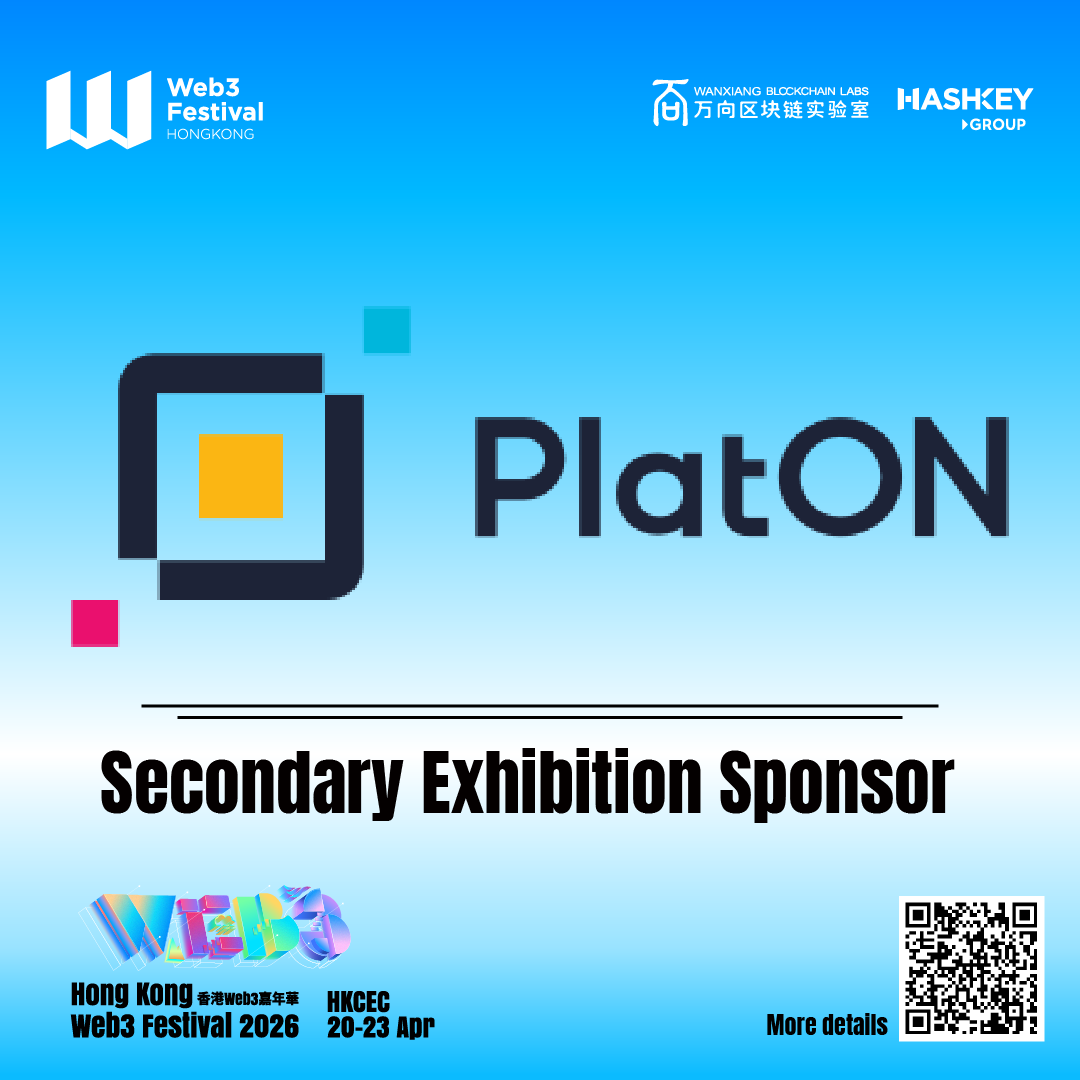

Hong Kong, 10th February 2026, The Hong Kong Web3 Festival 2026 just got another major sponsor on board. PlatON is coming in as a Secondary Exhibition Sponsor, and honestly, it’s a pretty good fit given what they’re trying to accomplish in the financial infrastructure space.
So what exactly is PlatON? It’s an open financial infrastructure platform that the LatticeX Foundation put together. The really cool part is this thing called TOPOS that sits on top of it – basically, it’s designed to help banks and payment companies actually make sense of blockchain technology and use it for real-world payments and clearing. We’ve all heard the talk about blockchain revolutionizing finance, but PlatON is actually trying to make that happen by building something traditional financial institutions can actually work with.
They’ve got the technical chops for it too – we’re talking high-frequency transaction processing, quick settlements, smart contracts that can handle multiple types of assets. This isn’t some experimental project; it’s built to handle serious stuff like cross-border payments, institutional settlements, and managing digital assets in a way that keeps regulators happy. If you want to dive deeper into what they’re doing, head over to https://platon.network.
Now, the festival itself has become a pretty big deal since it kicked off back in April 2023. Wanxiang Blockchain Labs and HashKey Group run it together, with W3ME handling the organization, and it’s turned into the go-to event for anyone serious about Web3 in Asia. It’s where people actually show up to talk about what’s working, what’s not, and where all of this is heading.
Mark your calendars for April 20-23 if you’re planning to go – it’ll be at the Hong Kong Convention and Exhibition Centre. The past three years have been pretty wild: 350+ exhibitors, over 1,200 speakers, 100,000 people coming through the doors, and more than 400 side events happening around the main conference. That’s a lot of activity packed into a few days.
This year they’re lining up around 300 speakers to cover pretty much every corner of Web3 and crypto. But here’s what’s really interesting – they’ve already got 500+ executives and decision-makers from traditional finance and regular businesses signed up. That’s not your typical crypto crowd. It means you’ve got old-school finance people genuinely trying to understand this space, sitting down with crypto natives, and actually having productive conversations. Those are the kinds of interactions that lead to real progress.
The fact that it’s in Hong Kong matters more than you might think. The city has always been this weird and wonderful mix of East and West, traditional finance and cutting-edge tech. It’s got one foot in Mainland China’s massive market and the other in the global financial system. That positioning means the festival can pull in people and ideas from everywhere, giving you access to perspectives and opportunities that just don’t exist at Western crypto conferences or purely Asian tech events.
Whether you’re already neck-deep in DeFi or you’re just trying to figure out what all the fuss is about, this has become the event that actually matters in the Asian crypto calendar.
Check out all the info at https://www.web3festival.org/hongkong2026/#/en.
Thinking about becoming a partner? Here’s where you start: https://tally.so/r/w5YEbP.
Press Release
TokenPocket Announced as Platinum Sponsor for Hong Kong Web3 Festival 2026
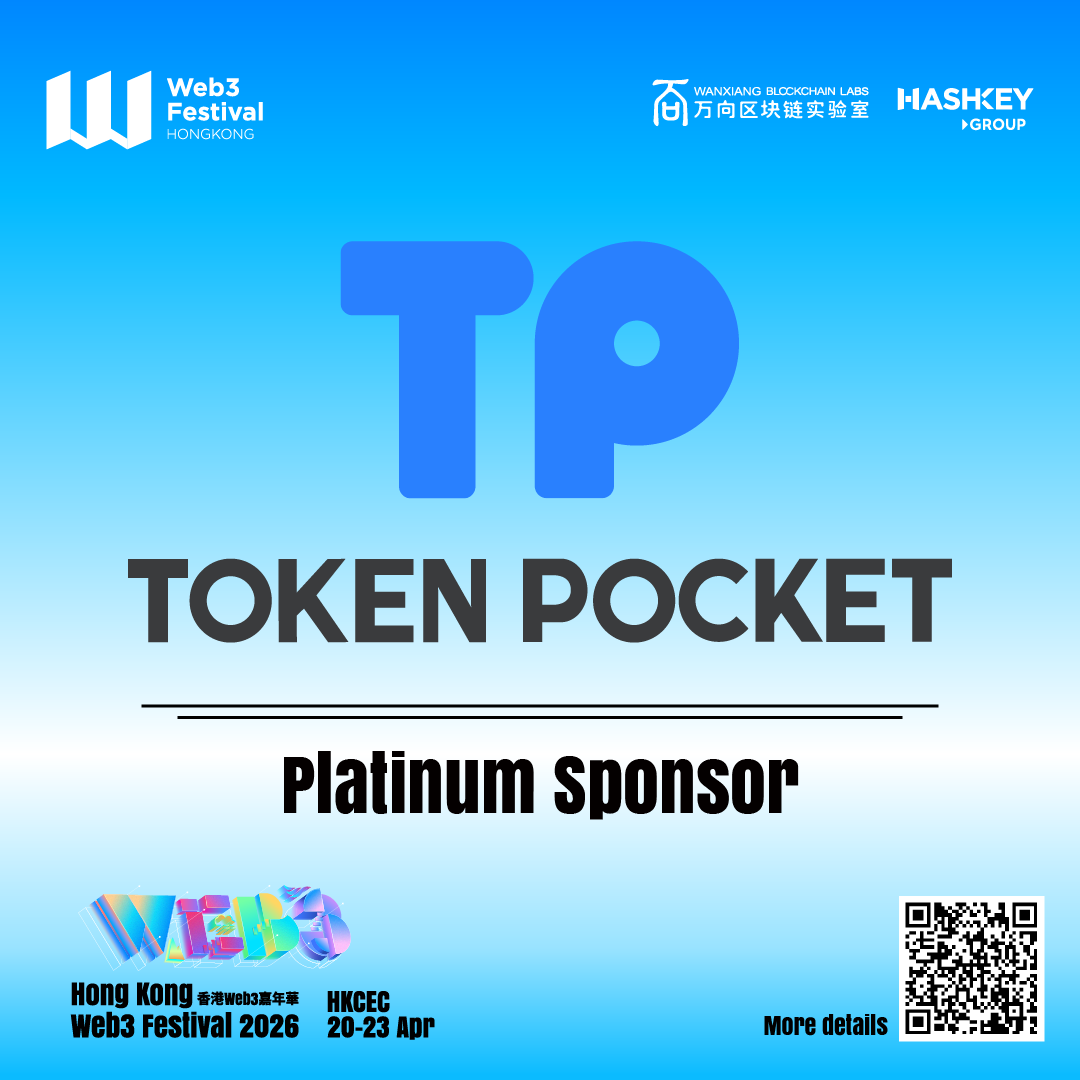

The Hong Kong Web3 Festival 2026 has announced TokenPocket as a Platinum Sponsor, further strengthening the event’s position as Asia’s premier gathering for blockchain innovation and decentralized technology. This strategic partnership brings together one of the industry’s leading multi-chain wallet providers with the region’s most influential crypto conference.
TokenPocket, a pioneering decentralized wallet platform, joins the festival as a key partner, bringing its expertise in blockchain infrastructure and stablecoin payment solutions to an event that has become essential for anyone serious about Web3’s future in Asia and beyond. The collaboration underscores the accelerating momentum behind Web3 adoption and reinforces Hong Kong’s strategic importance as a global hub for digital asset innovation and regulatory clarity.
About TokenPocket
TokenPocket stands as one of the cryptocurrency industry’s leading decentralized wallets, purpose-built for seamless multi-chain integration and efficient stablecoin transactions. The platform offers comprehensive accessibility through mobile applications, browser extensions, and the KeyPal hardware wallet, ensuring users can manage digital assets securely across multiple devices and environments with consistent functionality.
The wallet delivers enterprise-grade security protections combined with innovative features specifically designed to enhance user experience and reduce common pain points in digital asset management. Among its most notable capabilities is zero-gas-fee transfer functionality across multiple blockchain networks, significantly reducing transaction costs and eliminating friction that has traditionally hindered widespread crypto adoption. This powerful combination of robust security architecture and user-centric features positions TokenPocket as a truly decentralized, multichain wallet solution suitable for both cryptocurrency newcomers and experienced traders seeking advanced functionality.
TokenPocket’s participation as a Platinum Sponsor demonstrates the company’s commitment to supporting ecosystem development and fostering connections between infrastructure providers, developers, and institutional players across the Web3 landscape.
For more information about TokenPocket, visit https://tp.xyz/
About Hong Kong Web3 Festival 2026
The Hong Kong Web3 Festival, co-hosted by Wanxiang Blockchain Labs and HashKey Group and organized by W3ME, has firmly established itself as Asia’s premiere cryptocurrency and blockchain gathering since its launch in April 2023. The annual event serves as a critical convergence point for the world’s leading innovators, thought leaders, policymakers, and decision-makers in the Web3 and crypto ecosystems to explore emerging trends, regulatory developments, and technological breakthroughs shaping the industry’s future.
The 2026 edition will take place from April 20 to 23 at the Hong Kong Convention and Exhibition Centre, continuing the festival’s tradition of bringing together the brightest minds in decentralized technology. Previous editions have demonstrated remarkable scale and influence, collectively attracting over 350 exhibitors, more than 1,200 speakers, and a cumulative audience exceeding 100,000 visitors from around the world. The festivals have also catalyzed over 400 diverse side events, creating unparalleled networking and collaboration opportunities across the entire Web3 landscape.
This year’s festival is projected to feature up to 300 speakers representing every facet of Web3 and cryptocurrency, from blockchain infrastructure and DeFi protocols to NFTs, metaverse applications, gaming, and enterprise adoption strategies. Significantly, the event has already attracted registrations from over 500 executives and corporate decision-makers from traditional finance sectors and real economy industries, establishing the conference as a high-level platform for substantive dialogue, knowledge transfer, and strategic partnerships between Web3 innovators and traditional business leaders.
Hong Kong Web3 Festival leverages the city’s distinctive advantages as a global financial center and innovation powerhouse. This strategic positioning enables the event to bridge Mainland China’s vast market potential with worldwide Web3 developments, creating unique opportunities for cross-border knowledge exchange and business development. By bringing together premier resources, talent, and capital from across the globe, the festival provides attendees with exclusive access to cutting-edge Web3 updates, market insights, and networking opportunities unavailable elsewhere in the Asia-Pacific region.
For comprehensive event details, visit: https://www.web3festival.org/hongkong2026/#/en
Organizations interested in partnership opportunities can apply at: https://tally.so/r/w5YEbP
Press Release
Sui Foundation Announced as Exclusive Dinner Sponsor for Hong Kong Web3 Festival 2026


Hong Kong Web3 Festival 2026 is pleased to announce Sui Foundation as an Exclusive Dinner Sponsor, marking a significant partnership that underscores the growing collaboration between leading blockchain innovators and Asia’s premier crypto gathering.
Sui Foundation is an independent organization dedicated to growing and cultivating long-term value in the SUI ecosystem. The foundation supports developers, creators, and enterprises building on Sui, a next-generation blockchain platform designed for scalability and user-friendly experiences. Through strategic initiatives, grants, and community programs, Sui Foundation plays a vital role in advancing Web3 innovation globally. Their sponsorship of this year’s exclusive dinner event will provide attendees with unique networking opportunities alongside industry leaders and blockchain pioneers. For more information, please visit: https://www.sui.io/
The Hong Kong Web3 Festival (“Web3 Festival”), co-hosted by Wanxiang Blockchain Labs and HashKey Group and organized by W3ME, is Asia’s premiere crypto gathering that has been annually held since April 2023. It convenes the world’s smartest minds in the Web3 and crypto space to discuss the latest trends, policies, and technological breakthroughs shaping the future of decentralized technologies.
This year’s Hong Kong Web3 Festival will take place from April 20 to 23 at the Hong Kong Convention and Exhibition Centre, spanning four days of intensive programming, exhibitions, and networking events. The previous three editions of Web3 Festival brought together over 350 exhibitors and more than 1,200 speakers for in-depth discussions, attracted a cumulative total of 100,000 visitors, and saw over 400 diverse side events. These impressive numbers reflect the festival’s position as a must-attend event for anyone serious about the Web3 industry.
Web3 Festival 2026 will feature up to 300 speakers representing all aspects of Web3 and crypto on its stages, including blockchain developers, cryptocurrency innovators, DeFi pioneers, NFT creators, metaverse architects, and institutional investors. The event has also attracted registrations from over 500 executives and corporate decision-makers in traditional finance and real economies, demonstrating the increasing mainstream adoption of blockchain technology. This diverse attendance enables the conference to serve as a high-level platform for in-depth dialogues and high-value connections between emerging tech leaders and established financial institutions.
As Asia’s premier crypto event, Web3 Festival leverages Hong Kong’s unique position as a global financial center and innovation powerhouse, bridging the vast market potential of Mainland China with worldwide Web3 advancements. This strategic positioning is particularly significant as Hong Kong continues to establish itself as a leading Web3 hub with progressive regulatory frameworks and strong government support for digital asset innovation. The unique positioning enables the event to bring together the best resources from across the globe, offering attendees first-hand Web3 updates, networking opportunities, and insights into emerging market trends that will shape the industry’s future.
The partnership with Sui Foundation further elevates the festival’s reputation as the meeting point for blockchain innovation and enterprise adoption in the Asia-Pacific region.
Get all the details here: https://www.web3festival.org/hongkong2026/#/en
Be our partner: https://tally.so/r/w5YEbP
-
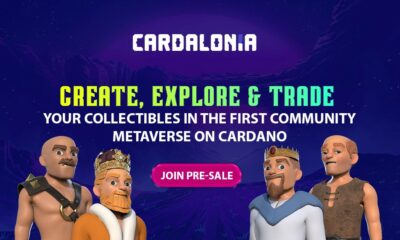
 Crypto4 years ago
Crypto4 years agoCardalonia Aiming To Become The Biggest Metaverse Project On Cardano
-
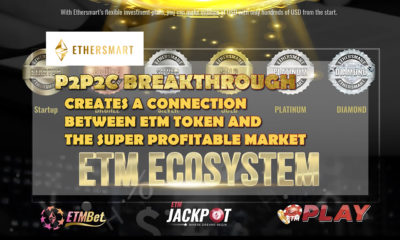
 Press Release5 years ago
Press Release5 years agoP2P2C BREAKTHROUGH CREATES A CONNECTION BETWEEN ETM TOKEN AND THE SUPER PROFITABLE MARKET
-
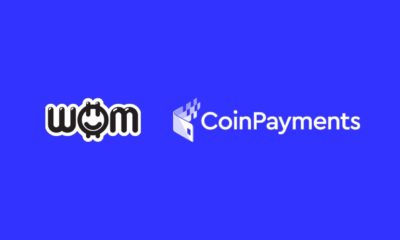
 Blockchain5 years ago
Blockchain5 years agoWOM Protocol partners with CoinPayments, the world’s largest cryptocurrency payments processor
-
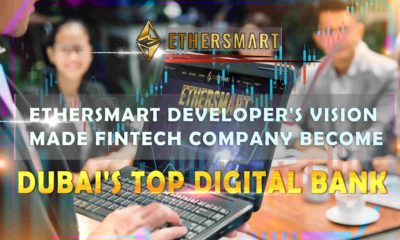
 Press Release5 years ago
Press Release5 years agoETHERSMART DEVELOPER’S VISION MADE FINTECH COMPANY BECOME DUBAI’S TOP DIGITAL BANK
-
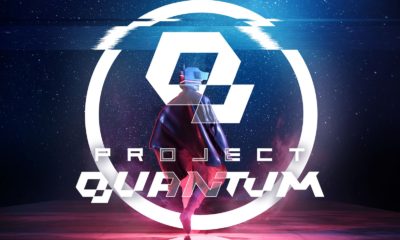
 Press Release5 years ago
Press Release5 years agoProject Quantum – Decentralised AAA Gaming
-
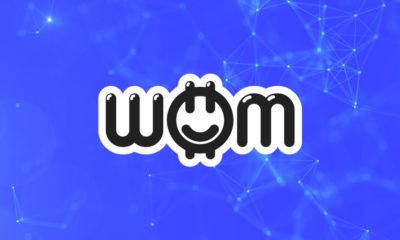
 Blockchain5 years ago
Blockchain5 years agoWOM Protocol Recommended by Premier Crypto Analyst as only full featured project for August
-
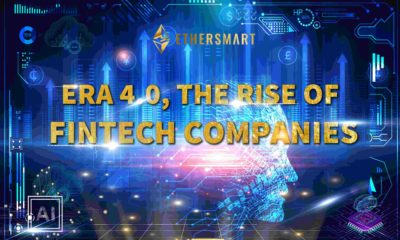
 Press Release5 years ago
Press Release5 years agoETHERSMART DEVELOPER’S VISION MADE FINTECH COMPANY BECOME DUBAI’S TOP DIGITAL BANK
-
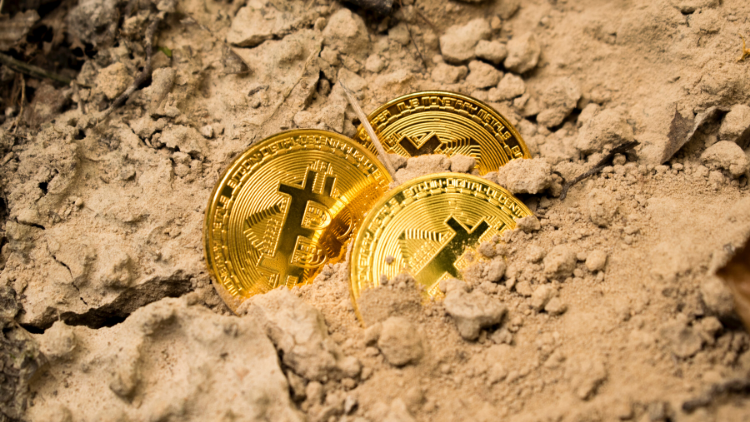
 Blockchain6 years ago
Blockchain6 years ago1.5 Times More Bitcoin is purchased by Grayscale Than Daily Mined Coins






